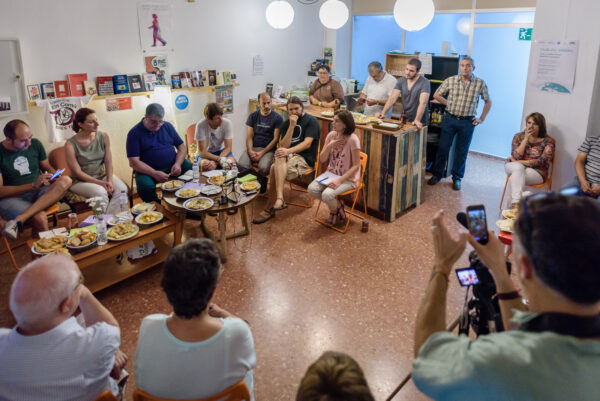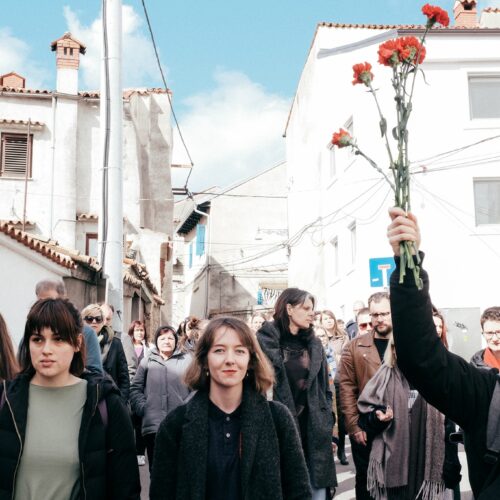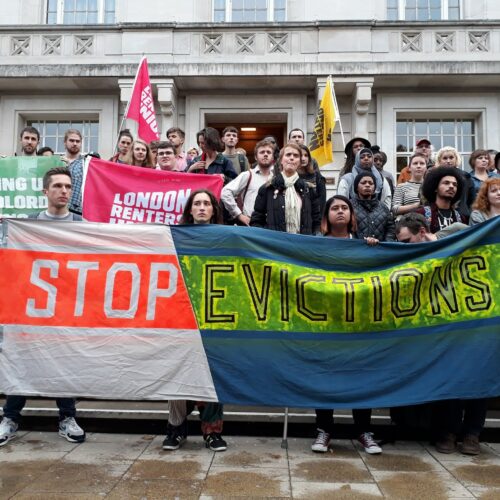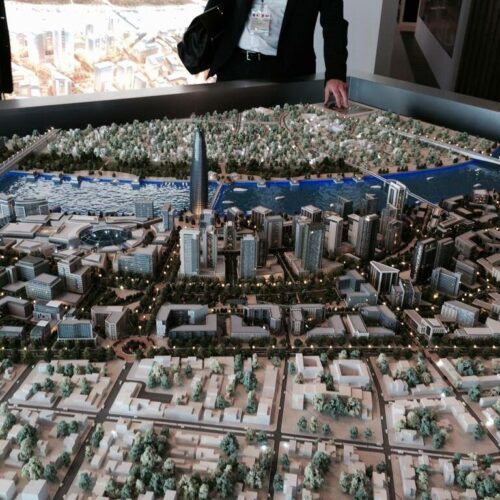Commonspolis is a non-profit organisation set up in 2018 to contribute to the municipalist ecosystem in Europe. It was born out of a previous (quite successful) experience reinforcing French emerging initiatives that aimed to present to the local elections by creating links with Spanish municipalism. Commonspolis’ projects and activities include initiatives around the social and solidarity economy, popular education, ecological transition, commons and collaborative governance.
Commonspolis has been involved in the EMN since its inception and has acted as financial and fiscal sponsor, providing an administrative structure for the EMN operations. This position was possible thanks to a trust relationship developed by Commonpolis with different municipalist actors that took part in initiating the EMN project.
The EMN is a project that promotes municipalism at the European level as a way of strengthening local democracy and promoting social and environmental justice in the face of the conservative and nationalist drift of Nation States. It was conceived and developed by a constellation of social, institutional and independent actors to build political power from the ground up, challenge the current model of top-down institutional governance and implement radical forms of democratisation of the way institutional politics work. Early on, the EMN was joined by the Feministisation of Politics collective (FoP), an autonomous political space that responds to patriarchal and hierarchical power structures in institutional politics. FoP is dedicated to advancing a feminist perspective to political and activist organising, aiming to convey a different, feminist culture that is not only focused on ‘tokenising’ feminism – by way of putting forward feminist policies – but seeks to produce a change inside the movements, towards a broader transformation on the culture of political organising that embodies feminist principles and perspectives. The EMN project seeks to create supporting structures and generate political spaces that strengthen these political hypotheses in Europe.
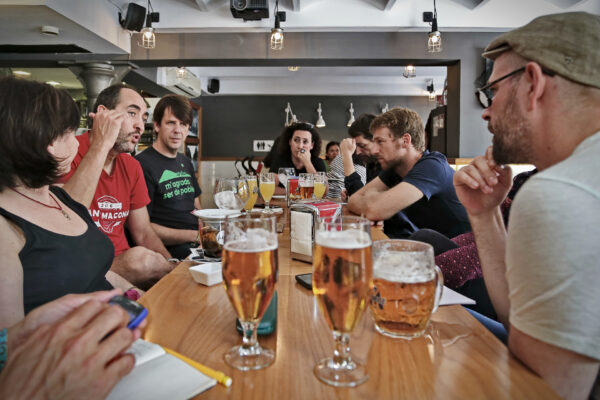
The EMN organisational model has been learning from an ongoing experience. After the first phase, where the coordination responsibility mainly fell on members of Commonpolis and activities were somehow compartmentalised, there was room to improve the structure with new ways of organising that imbue the values of cooperation and decentralisation they want to practise. Based on the collective assessment done at the end of the first phase, they decided to decentralise the coordination of phase two and include a diverse set of actors that will enrich, shape and better inform the municipalist practice. The present phase has Commonspolis, Research for Action, Commons Network and the Transnational Institute who are strategic partners taking care of different transversal ‘spaces’ regarding knowledge exchange, communications, territorial implementation and storytelling. These strategic partners are called Space Caretakers. At the same time, Nedavimo Beograd, Zagreb Je Nas, Marea Atlántica, l’Asilo, Nantes en Comum, SANE and interested individuals act as ‘partners’ in the development of those spaces. Partners and Space Caretakers meet annually in an assembly that welcomes new incorporations and helps connect with a wider group of participants and audiences.
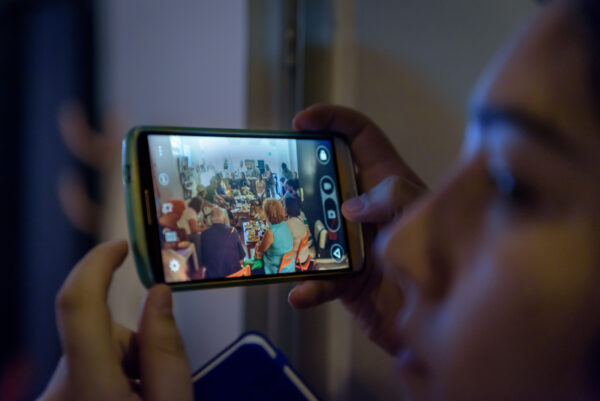
The EMN understand municipalism as a democratic tool that shows communities’ capacity to impact their territories in a time where the ability of nation-states to provide a ‘good life’, a life worth living for their inhabitants, human and more-than-human, is currently in question. Especially in the face of major disruptive events such as the pandemic or the climate emergency, the centralised and detached regard that loses contact with people’s lives shows its shortcomings. EMN activities address this question by identifying, articulating and strengthening radical democratisation proposals. The municipalist approach advocates for a transformation of modes of decision-making and territorial governance to address structural and systemic issues. The EMN project supports self-government and the autonomy of the local scale, social justice, democratic and participatory procedures and commons processes as part of a politics ascribed to feminist, ecological and decolonial values.
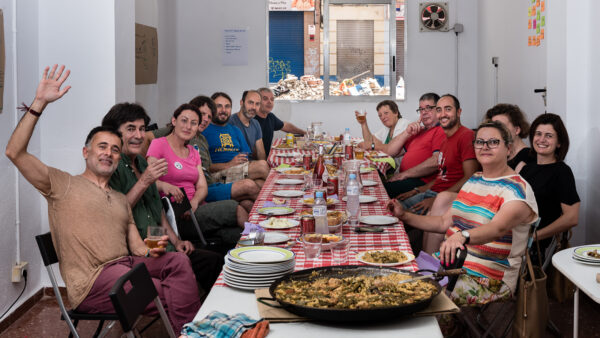
The crew aim to generate a supporting structure for municipalist actors in the European political space based on peer-to-peer relations, trust, comradeship and skill-sharing that gathers local and translocal municipalist actors. The project seeks to continue identifying and connecting these municipalist actors in an ecosystem that produces shared knowledge, supports local agendas and articulates common conflicts and struggles across Europe – in fields such as housing rights, energy justice, climate emergency, counter-hate discourses – from anti-racist to feminist and LGBTI – and democratisation of the economy, among others. In this second phase, they have identified three overarching objectives:
– to offer a strong narrative of municipalism as a bottom-up alternative to neoliberalism and authoritarian practices.
– to contribute to knowledge on implementing non-state-based policies that incorporate the principles of self-management, direct democracy and mutual aid in the institutions (e.g. commons, cooperatives, etc.)
– to reinforce the network and strengthen the actors by reinforcing the EMN structure and local territories.
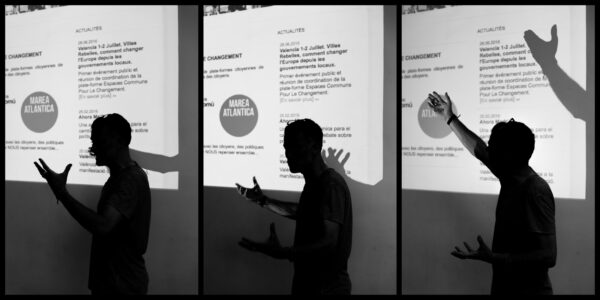
The groups involved in the EMN represent a diverse ecosystem of different actors with different goals and constitutions. There are electoral platforms, such as Nevadimo Beograd (RS), social organisations seeking to transform institutional structures on the ground, such as Massa Critica (Naples – IT), translocal actors which seek to systematise experiences and knowledges – such as Transnational Institute (based on Amsterdam, NL) or interested individuals based in territories where there is not a robust municipalist movement – as in Poland, UK or Sweden – or where there has been – as in Spain or France – that contribute with their specific, situated context.
The EMN aims to link to grassroots social movements by involving local actors who share the municipalist aim of transforming existing institutional structures and are interested in participating in an international network. Furthermore, the EMN (and Commonpolis) is part of a broader ecosystem that is interested in promoting democratic, interdependent and just territories through social organisations on the ground, transnational organisations (such as Rosa Luxemburg Stiftung), institutional structures (such as the UCLG or the International Observatory on Participatory Democracy (IOPD), city governments (such as Grenoble (FR), Cadiz (ES) or Preston (UK), institutional and activist projects – such as Minim, C4C, Fearless Cities – and research groups and projects – such as the Critical Mapping for Municipalist Movements. However, their aim is not to include all municipalist and proto-municipalist actors in the EMN but to nourish an emerging municipalist ecosystem and contribute to these shared efforts.
